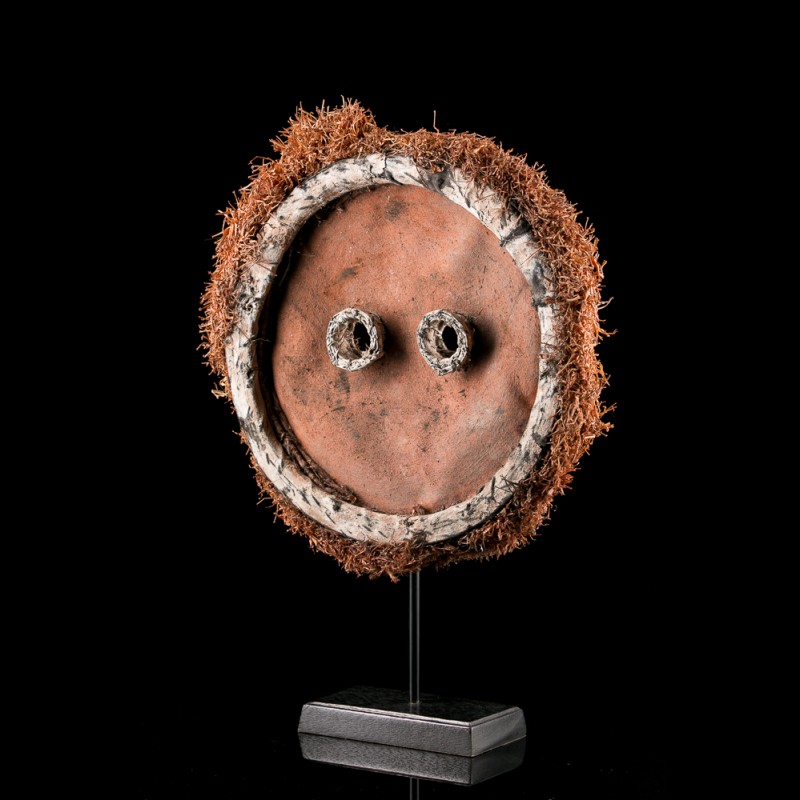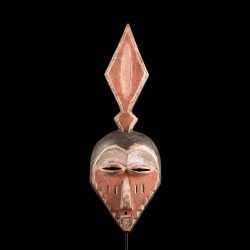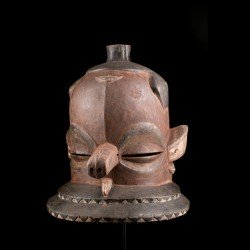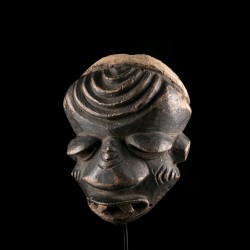














This mask is part of an exceptional set of pieces photographed in situ around the middle of the 20th century "see attached photo" which will be provided and were collected in Zaire. Please contact me for more information. The base is included.
This African minganji mask (pl. munganji) participated in initiations in the Kwilu and central Pende regions. These fiber masks have the advantage of being very light which allowed the dancers to produce sudden and rapid movements when changing direction during the dances.
As seen in the attached photos, the dancer wore a light rope costume, often streaked. The tubular eyes edged in white are characteristic of these masks and represent the character irritated by the excessive demands of his children. The feathers or raffia covering the perimeter establish a link with the fact that the munganji come out of the bush when they appear. These masks, it is said, like to trap the uninitiated on the paths traversing the bush.
They convey a form of authority since their carriers are armed with whips and punish certain types of criminals. In African Pende art, this circular mask strongly resembles another mask made up of a circular wooden tray and known as a gitenga (see the contextual photo showing a lone dancer, wearing the gitenga mask).
Data sheet
You might also like

This mask is part of an exceptional set of pieces photographed in situ around the middle of the 20th century "see attached photo" which will be provided and were collected in Zaire. Please contact me for more information. The base is included.
This African minganji mask (pl. munganji) participated in initiations in the Kwilu and central Pende regions. These fiber masks have the advantage of being very light which allowed the dancers to produce sudden and rapid movements when changing direction during the dances.
As seen in the attached photos, the dancer wore a light rope costume, often streaked. The tubular eyes edged in white are characteristic of these masks and represent the character irritated by the excessive demands of his children. The feathers or raffia covering the perimeter establish a link with the fact that the munganji come out of the bush when they appear. These masks, it is said, like to trap the uninitiated on the paths traversing the bush.
They convey a form of authority since their carriers are armed with whips and punish certain types of criminals. In African Pende art, this circular mask strongly resembles another mask made up of a circular wooden tray and known as a gitenga (see the contextual photo showing a lone dancer, wearing the gitenga mask).


